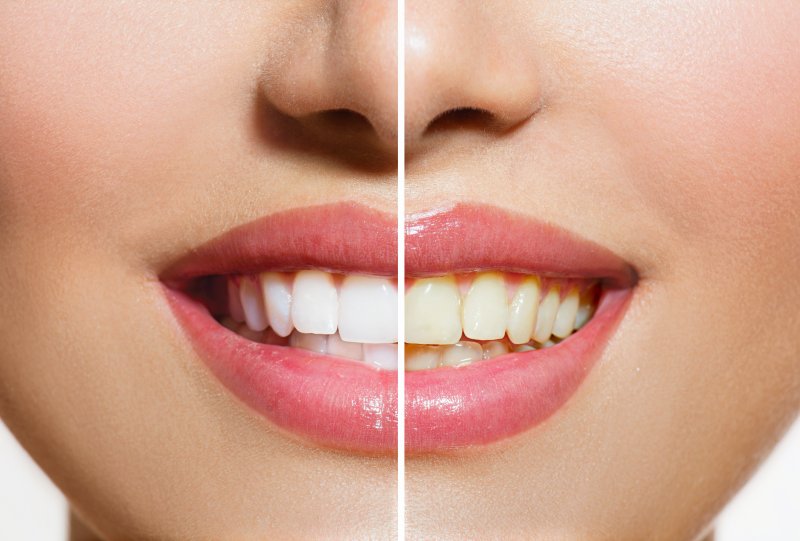
While professional teeth whitening is an overall safe way to improve your appearance, it’s not entirely without its side effects. Many patients find that after a whitening procedure, their teeth become more sensitive. Why exactly does this happen? And is it something you’ll be able to control? Read on to learn more about the link between whitening and teeth sensitivity in West Orange.
What Causes Sensitivity After Teeth Whitening?
Professional teeth whitening typically involves hydrogen peroxide as an active ingredient. In some cases, the peroxide can affect your teeth and make them more sensitive. You might notice an aching sensation during the whitening process, or you might experience discomfort whenever something hot or cold touches your teeth. In some cases, you may experience pain while brushing your teeth.
Whether or not teeth sensitivity occurs after whitening depends on the method used as well as your individual health history. Luckily, it’s not a long-term problem; it will eventually fade over time. That said, while your teeth are still sensitive, you’ll probably want to take steps to keep them safe.
Managing Teeth Whitening Sensitivity
While you’re dealing with sensitive teeth, the most important thing you can do is avoid anything that might cause your teeth pain. In particular, you should stay away from extremely hot or cold beverages until your teeth are back to normal.
If you’re using a professional-grade whitening kit, there are a few steps you can take to find some relief from tooth sensitivity. For one thing, you can reduce the amount of whitening gel you place in your trays, and you can allow yourself more time between sessions. If you do find that your teeth are becoming too sensitive for your liking, it might be a good idea to take a break from your whitening treatment for a while.
Your dentist may also be able to give you some advice for managing tooth sensitivity. In some cases, they might point you towards special kinds of toothpaste that can reduce sensitivity. These toothpastes contain active ingredients that block the pain signals being sent from your teeth, keeping your discomfort to a minimum until the sensitivity wears off naturally.
How Long Should the Sensitivity Last?
Normally, teeth whitening sensitivity should only last for a few days. It’s most noticeable during the first day, but it should start to fade rather quickly. Normally it will no longer be a concern after about a week. If for whatever reason your sensitivity persists or grows worse, call your dentist.
Sensitive teeth are never fun, but they’re a small price to pay in exchange for a brighter smile that you can be proud of. Your dentist will make sure you’re well aware of what to expect and what options you have for relief in the meantime. Get in touch with them today if you’re ready to learn more.
About the Author
Dr. Med Dawoud is the owner of D&G Dental. He’s a graduate of The University of Medicine and Dentistry of New Jersey. He has quite a bit of experience with cosmetic dentistry and offers a variety of treatments that can help improve the appearance of your smile, including teeth whitening. If you’re interested in making a few changes to your teeth, you can reach out to Dr. Dawoud at D& G Dental by visiting his website or calling (973) 731-2200.
